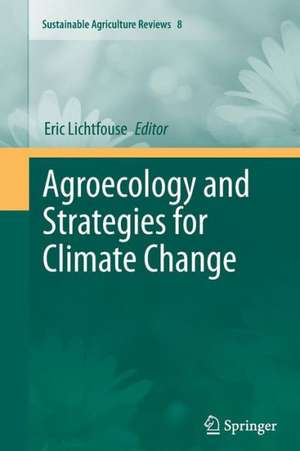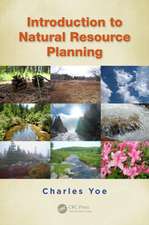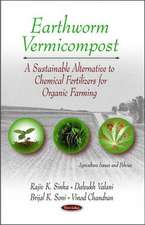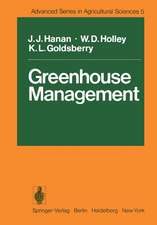Agroecology and Strategies for Climate Change: Sustainable Agriculture Reviews, cartea 8
Editat de Eric Lichtfouseen Limba Engleză Paperback – 30 noi 2013
| Toate formatele și edițiile | Preț | Express |
|---|---|---|
| Paperback (1) | 946.72 lei 43-57 zile | |
| SPRINGER NETHERLANDS – 30 noi 2013 | 946.72 lei 43-57 zile | |
| Hardback (1) | 952.89 lei 43-57 zile | |
| SPRINGER NETHERLANDS – oct 2011 | 952.89 lei 43-57 zile |
Din seria Sustainable Agriculture Reviews
- 24%
 Preț: 783.49 lei
Preț: 783.49 lei - 15%
 Preț: 652.49 lei
Preț: 652.49 lei - 15%
 Preț: 641.71 lei
Preț: 641.71 lei - 18%
 Preț: 953.65 lei
Preț: 953.65 lei - 15%
 Preț: 648.24 lei
Preț: 648.24 lei - 5%
 Preț: 1106.69 lei
Preț: 1106.69 lei - 5%
 Preț: 1110.32 lei
Preț: 1110.32 lei - 18%
 Preț: 955.25 lei
Preț: 955.25 lei - 18%
 Preț: 1233.83 lei
Preț: 1233.83 lei - 18%
 Preț: 1123.35 lei
Preț: 1123.35 lei - 18%
 Preț: 1115.46 lei
Preț: 1115.46 lei - 18%
 Preț: 1117.03 lei
Preț: 1117.03 lei - 18%
 Preț: 1387.73 lei
Preț: 1387.73 lei - 18%
 Preț: 1222.80 lei
Preț: 1222.80 lei - 18%
 Preț: 1113.09 lei
Preț: 1113.09 lei - 18%
 Preț: 903.93 lei
Preț: 903.93 lei - 18%
 Preț: 1114.65 lei
Preț: 1114.65 lei - 18%
 Preț: 1223.11 lei
Preț: 1223.11 lei - 24%
 Preț: 1056.88 lei
Preț: 1056.88 lei - 18%
 Preț: 1234.00 lei
Preț: 1234.00 lei - 20%
 Preț: 565.09 lei
Preț: 565.09 lei - 18%
 Preț: 1826.54 lei
Preț: 1826.54 lei - 18%
 Preț: 952.89 lei
Preț: 952.89 lei - 18%
 Preț: 955.08 lei
Preț: 955.08 lei - 18%
 Preț: 950.96 lei
Preț: 950.96 lei - 15%
 Preț: 649.71 lei
Preț: 649.71 lei - 18%
 Preț: 954.62 lei
Preț: 954.62 lei
Preț: 946.72 lei
Preț vechi: 1154.54 lei
-18% Nou
Puncte Express: 1420
Preț estimativ în valută:
181.18€ • 188.45$ • 149.57£
181.18€ • 188.45$ • 149.57£
Carte tipărită la comandă
Livrare economică 14-28 aprilie
Preluare comenzi: 021 569.72.76
Specificații
ISBN-13: 9789400738195
ISBN-10: 9400738196
Pagini: 344
Ilustrații: VI, 338 p.
Dimensiuni: 155 x 235 x 18 mm
Greutate: 0.48 kg
Ediția:2012
Editura: SPRINGER NETHERLANDS
Colecția Springer
Seria Sustainable Agriculture Reviews
Locul publicării:Dordrecht, Netherlands
ISBN-10: 9400738196
Pagini: 344
Ilustrații: VI, 338 p.
Dimensiuni: 155 x 235 x 18 mm
Greutate: 0.48 kg
Ediția:2012
Editura: SPRINGER NETHERLANDS
Colecția Springer
Seria Sustainable Agriculture Reviews
Locul publicării:Dordrecht, Netherlands
Public țintă
GraduateCuprins
1. Agroecology, A Tool for the Realization of the Right to Food, Dr. Olivier de Schutter.- 2. Agroecology and the food system, Dr. Alexander Wezel.- 3. Development of a Sustainably-Competitive Agriculture, Dr. Gordon Purvis.- 4. Emissions of ammonia, nitrous oxide and methane during the management of solid manures, Dr. Jim Webb.- 5. Communication in the rhizosphere, a target for pest management, Dr. Juan Antonio López Ráez.- 6. A novel land-energy use indicator for energy crops, Dr. Vito Sardo.- 7. Conventional, organic and conservation agriculture: production and environmental impact, Dr. Jens B. Aune.- 8. Improving water use efficiency for sustainable agriculture, Dr. Amir Raza.- 9. Genetic mechanisms of drought stress tolerance, implications of transgenic crops for agriculture, Dr. Sudesh Kumar Yadav.- 10. Plant Parasitic Nematode Diversity in Pome, Stone and Nut Fruits, Dr. Tarique Hassan Askary.- 11. Fly ash for agriculture. Implications for soil properties, nutrients, heavy metals, plant growth and pest control, Dr. Amit K. Gupta.- 12. History and techniques of organic farming, Dr. Kambaska Kumar Behera.
Textul de pe ultima copertă
Sustainable agriculture is a rapidly growing field aiming at producing food and energy in a sustainable way for humans and their children. Sustainable agriculture is a discipline that addresses current issues such as climate change, increasing food and fuel prices, poor-nation starvation, rich-nation obesity, water pollution, soil erosion, fertility loss, pest control, and biodiversity depletion. Novel, environmentally-friendly solutions are proposed based on integrated knowledge from sciences as diverse as agronomy, soil science, molecular biology, chemistry, toxicology, ecology, economy, and social sciences. Indeed, sustainable agriculture decipher mechanisms of processes that occur from the molecular level to the farming system to the global level at time scales ranging from seconds to centuries. For that, scientists use the system approach that involves studying components and interactions of a whole system to address scientific, economic and social issues. In that respect, sustainable agriculture is not a classical, narrow science. Instead of solving problems using the classical painkiller approach that treats only negative impacts, sustainable agriculture treats problem sources. Because most actual society issues are now intertwined, global, and fast-developing, sustainable agriculture will bring solutions to build a safer world. This book series gathers review articles that analyze current agricultural issues and knowledge, then propose alternative solutions. It will therefore help all scientists, decision-makers, professors, farmers and politicians who wish to build a safe agriculture, energy and food system for future generations.
Caracteristici
Starts by an official United Nation report showing that agroecology is the solution to actual worldwide food issues Reports many agricultural techniques to decrease greenhouse gas emissions Reports a list of transgenic plants against drought stress (Bhardway and Yadav: Genetic mechanisms)










